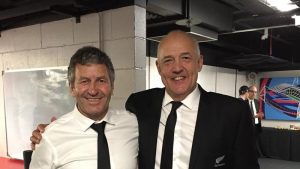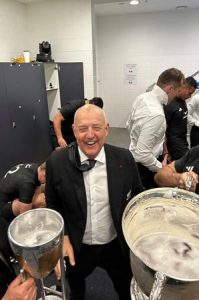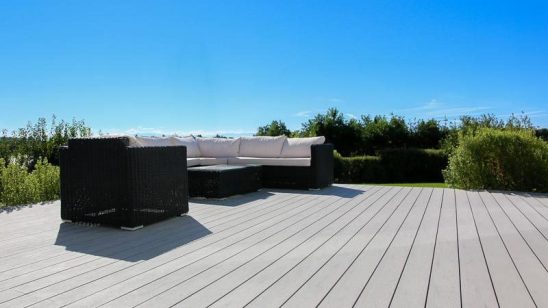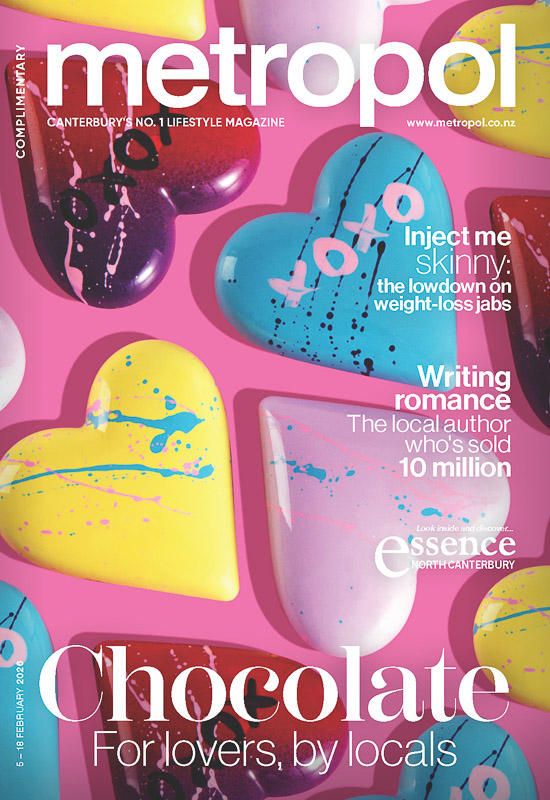
Getting to know Gilbert Enoka
A young Gilbert Enoka stared out to the world, a challenging childhood and an ‘other.’ Later, he would become the man behind the minds of successful international sporting team, the All Blacks. Metropol Deputy Editor Nina Tucker dives into his world.
The Game
Gilbert’s tenure as a mental skills coach spans 23 years, 304 tests, and two World Cup wins with the All Blacks. An “amazing privilege,” that, in 2023, convinced the owner of Chelsea Football Club to instruct his agent, “Get Gilbert Enoka over here.” His mental performance coaching is forged inside some simple philosophies – immediacy, moving forward, and trusting the gut. 
“First never follows,” Gilbert notes, “so, we harness an unquenchable thirst to continuously improve.” Focusing on concepts that have otherwise proved impossible, and being the first and fastest to do it. The heavy expectations set for the All Black players apply to management too, “No one is bigger than the team,” he adds, and that’s where the famous ‘No Dickheads’ policy derives. It’s a motto from learned experience, with Kiwiana flair. “We went through a period of time thinking we could improve everyone but soon learned that some people just can’t change,” Gilbert says.
“If you can’t change the people, change the people.” Simple and practical. These principles are the motivators of Gilbert’s approach, “never menu driven, or one size fits all.”

The Story
The ‘normal’ pathway that often accompanies a track record like Gilbert’s, was something never available to him. Forget the researching, planning, nurtured guidance, and solid mentors that many have when pursuing a future. From humble beginnings, he charted his own course. “I thought the world was made up of ‘normal people’ and ‘me.’ That I was damaged goods, that was just the card I was dealt.” A childhood spent in an orphanage and a difficult home life thereafter may have resulted in the insight and strength that powered his incredible career, but it certainly wasn’t an easy road. “I gained strength, but boy, it was a struggle. It still is at times,” Gilbert shares.
In his late teens, Gilbert moved to Christchurch to “take control” of life. He planned to become a teacher, however once he stumbled across Wayne Smith, that plan was history. Early in his career, Gilbert felt the anguish of an industry that was frowned upon. There was a real need to get mental skills accepted as a credible discipline.
Gilbert mentored cultures of unity and self-acceptance, although his own culture, repressed at an early age, tugged at him. “The 2023 census was the first time that I recorded myself as a Cook Island Māori,” Gilbert says. “There is no doubt in my mind that the world I was brought up in conditioned me to think that brown-skinned people were second to their Pākehā cousins. Often not loudly spoken, but always present.” Age seasoned him, in many ways, including growing enormously proud of his identity. “I am Gilbert Enoka, a proud Cook Island Māori.”
Stacked on top of those challenges was entering an industry to work on a concept that had yet to be accepted, while carrying an upbringing of significant hurt. Even reaching the top, the battles continued. “Maulings” from the media and the constant push for acceptance in the mental sector, fused with pain on the inside and grasping his true identity ensued.
The Process
Taking his own advice, Gilbert pushed forward with sureness, while acknowledging there were more than a few wobbles. “The lens through which you view the world shapes your reality. I became good at understanding this and gained strength through my ability to shift my mindset when my past triggered unpleasant memories.” He now uses his journey and insight to educate outside of sports too, sharing his knowledge at conferences and events.
Most of the work aimed at improving mental performance in sport can be attributed to the likes of Wayne Smith, Leigh Gibbs, and Keith Mair, according to Gilbert. “They were the pioneering coaches, the trailblazers in this space. People who truly understood that physically tough does not mean mentally tough,” he adds.
Over the years, the bleak considerations for mental performance have developed into brighter horizons, however, Gilbert says that there are still cases of acknowledging the need without allocating the necessary time, resources, and structures to make a real difference. It comes down to understanding the differences between mental health and mental strength, which are commonly misused for the other. “Mental health is about overall mental and emotional wellbeing. Mental strength is the ability to tolerate discomfort and take constructive and often courageous action.”

Hundreds of players have been mentored by Gilbert to keep a cool head under pressure. Keeping emotions level, Gilbert adds, is the role of the mental game, to “stay in the moment, see things clearly, and play the opportunities you see.” When emotions fluctuate, these elements are compromised. To calm his own stressors, he looks to proven professionals, other coaches, friends, and most importantly his wife, Michelle. He espouses the importance of sharing the troubles. “When you embrace this, you learn that vulnerable is indeed the new strong.”



